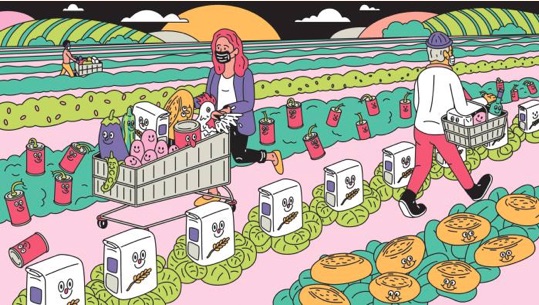This Financial Times feature says it has been made devastatingly clear that our planet’s health and our own are no longer separate. This is partly because Covid-19 is only the latest in a series of zoonotic diseases (HIV, Ebola, Sars, Zika) that have jumped species as humans plough further into forests, encroaching on
wild habitats.
There’s nothing like empty supermarket shelves to focus the public’s attention on the issue of food supply. Demand from the food service industry (restaurants, canteens) fell off a cliff but correspondingly soared from domestic consumers now that everyone was eating all their meals at home.
According to Kantar, the market researcher, grocery sales were up about 17 per cent during lockdown and online orders grew more than 90 per cent. Direct farm sales went through the roof, veg box schemes were oversubscribed. Food producers who had sold to restaurants had to scramble to find alternative customers.
We understand now that food supply chains are not just about lorries and ports and supermarket distribution hubs. These supply chains are also the links between deforestation and climate change, biodiversity loss to us, to the microbiomes in our guts, the resilience of our immune systems and of our communities.























